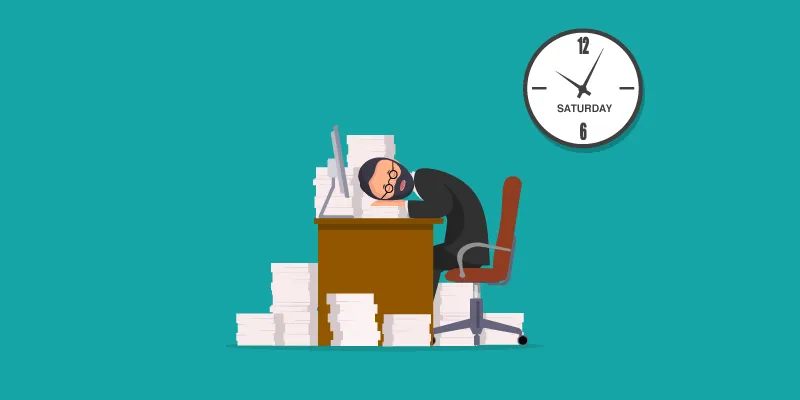All talk and no work will give your team working weekends. Surely you don’t want that?
A few days ago, I was thinking about the pros and cons of this independent stint. Working from home, in complete isolation for the most part, allows me to get away from the unnecessary clutter of words around me, in meetings, by the coffee machine, in the lift, early in the morning. I have not been one for small talk for over a decade now. It was a constant struggle for me to not walk out of meetings the minute conversations got unnecessary. And suddenly, I have so much more bandwidth to just create things, dig deep into ideas I had forgotten about, draw inspiration from sources I didn’t realise held so much potential, to just work. And for that, I am grateful.

Image: Shutterstock
Workplace communication, the volume of it, the lack of substance in it, has been a pet peeve for as long as I can remember. When we are not on yet another pointless conference call, we have endless meetings. When we are not checking in or giving status updates informally across bays, we are responding to mails, instant messages, work-related WhatsApp groups – there is no end to the clutter of conversation at the workplace. Compared to the past, new managers now feel the pinch of FOMO much more. In a culture based on quick feedback and click-of-a-button conversations, feeling left out of the loop and related anxiety and distraction seem to have become much worse.
If you feel this way about all the communication that hits you at work each day, know that you are not alone. Most of the communication at the workplace is often non-urgent, no matter what the subject line says. So how can you stop yourself from becoming a victim of communication overload or worse, an addict?
Stick to scheduled time for communication
No, you don’t have to read every email that hits your inbox immediately. Unless your role singularly demands live social media community management, you don’t have to like every comment or respond to every message immediately. Schedule two to three brief slots in a day for email and social media and stick to it religiously. If the world is ending outside of these slots, people will find you and inform you about it. The onus does not always have to be on you. Quality work is much more important than instant responses.
One ‘sync up’ every few days is enough, really
The obsessive need to ‘catch up’, ‘keep track’, and ‘stay in the loop’ needs to stop. As a new manager, it is often difficult to trust your team and let go. But you are only getting in the way of quality work if you don’t do it. I learned the hard way too. There is no need to walk over to people’s desks just to ‘check in’ when they are in the middle of something important. Three 20-minute catch-up sessions with the team is just wasting time that can be spent on deliverable. This is not to say that teams should not exchange ideas, brainstorm, or just participate in good old office banter. But there is a time and place for it – your team and you can’t be spending the entire day on it and working 12-hour days because you were not confident about their ability to get things done. The sooner new managers learn this, the better they will be able to manage their as well as their team’s time.
Guiltlessly claim your DND time
The DND status on your office communicator and empty meeting rooms in your office are there for a reason. If you have a deliverable that needs your complete attention, there is nothing wrong in claiming your DND time, turning off your notifications, and focusing singularly on the task at hand. Your results and consequently, your client, team and boss, will be better off with it.
You don’t need to use every communication device around you
You are on Skype. You respond to every WhatsApp messages. You have iMessage activated, and your email is always active. All your social media handles are active through the week. The mobile phone rings quite often too, as does your desk phone. If you feel exhausted keeping up with all the communication channels, I am not surprised. If you take to every tool available to you and actively respond on every one of them, people will reach wherever they want. Some peculiar clients will use all the tools for the same message – we have all had one of those at some point. Limit your channels to two or three and make sure your key stakeholders know which ones. Put it on your email signature so you don’t feel the need to check every tool all day and exhaust yourself in the process.
Use good tools, not all of them
Putting effective project management tools in place saves everyone the effort of writing status on emails or participating in 10 different catch up sessions in the week. Shared folders and status sheets, gantt charts, and WBS all work very well and take the ‘talk’ out of ‘communicate’ for effective collaboration. Find out which tools work best for your team and use them religiously.
Eventually, it is about building the work-centric culture in your team, not a communication-centric one. The end result matters and if that means that you schedule time for conversation and use it judiciously, so be it.
Also read: How to create the ideal work environment for maximum productivity







